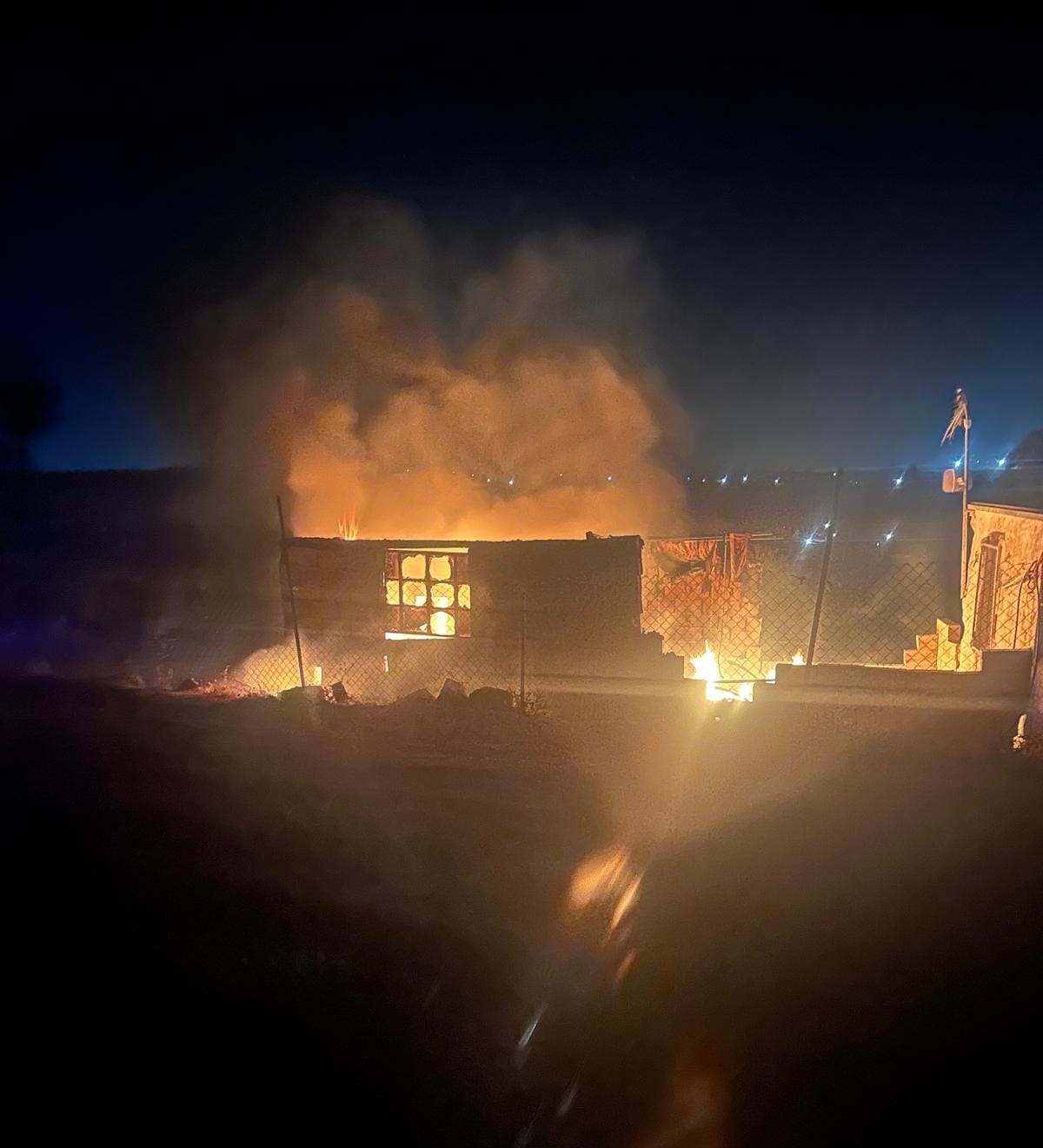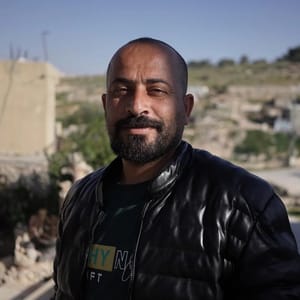We have an Oscar – but where is international law?
We're being beaten up and humiliated every day – and no one is watching anymore.

The name of my village, Susiya, might ring a bell for you. If you pay attention to the news, you may even recognise my name from the headlines. But my next-door neighbours are not famous, and the violence and injustices that they endure daily are usually forgotten. They are shepherds and agricultural workers who want to live on their land in peace, but everyday they are attacked; every day they are actively being forced out of their homes, and no one is doing anything about it. I received a standing ovation when my documentary No Other Land won the Oscar six months ago. Since then, the international community has not lifted a finger to help my village.
In recent months, settler attacks in Susiya in the Masafer Yatta region of the West Bank have increased dramatically. These attacks have been extremely violent; it has never been plainer that settlers are motivated by an intent to wound residents, and even to kill them. Every day the village wakes up and expects an attack, if not two or three. Being attacked has become an integral part of our daily lives.
In early June, settlers set up a tent near my home, barely 200 metres away. This tent became a launching pad for their attacks. They would come to my house with a flock of sheep, destroy my garden and trees, and assault my neighbours.
Four days later, the settlers moved the tent east of Susiya and repeated the attacks on the homes and fields of residents there. Two weeks later, the courts ordered the police and civil administration to remove the tent once and for all. This didn’t stop the settlers from finding new ways to inflict violence on the village.
In the early hours of 25 June, flames engulfed the home of my neighbour, Nasser Shreiteh, after settlers set fire to it. The building had served as a kitchen and living room for Shreiteh's family of ten, including seven children. Fortunately, because the family was visiting relatives in the nearby city of Yatta, the home was empty at the time.
As I watched the fire, my mind returned to the day in March when Nasser and I were both beaten and kidnapped by the Israeli military. There was a lot of media attention back then. Now, as I watched his house turn quietly to ashes in the dark, I thought: what will it take for people to wake up?
I spoke with Imran Nawajaa, another resident, who recounted a settler attack that took place a couple of weeks earlier, during which his head was severely injured.
“My house is simple, built of bricks and covered with tin,” Imran said. “I work in agriculture and own about nine dunams of land. To the east of the village, about 400 metres from my house, lies an Israeli settlement also known as ‘Susiya’. To the south lie further settler outposts, all of which were established after 7 October. Since then, we have found ourselves surrounded, and subject to almost daily violence.”
These settlers prevent us from accessing our lands, cultivating them, or even grazing our own livestock. Israeli military forces also restrict our movement, sometimes preventing us from leaving our own homes.
“On the afternoon of 17 June, I was sitting in front of my house with my wife and several family members,” Imran continued. “Suddenly, we saw three masked settlers approaching from the direction of the settlement, hurling stones at us with slingshots. They were only about 50 metres away. Moments later, an ATV arrived from the direction of the settlement, carrying five other masked settlers armed with wooden clubs.
“They drove quickly toward me and my wife, Rabiha. When the vehicle stopped, the five settlers got out and approached me directly, without saying a word. They began beating me on the head with clubs. I tried to protect myself, but the beating was too violent. After several blows, I lost consciousness and fell to the ground.”
By the time Imran regained consciousness, the settlers had fled the scene. He remembers his wife screaming and trying desperately to stop the bleeding from his head with a cloth. Residents gathered to help them.
“Minutes later,” Imran went on, “another group of about ten settlers arrived from the new settlement outpost and began throwing stones at the crowd. But as the crowd grew, the settlers withdrew and returned to the outpost. An Israeli military patrol turned up shortly after, only to do absolutely nothing to help me in my critical condition, or even go after my attackers — who were now safely back in their settlement.
“It was a Palestinian Red Crescent ambulance that took me to the nearest hospital in the city of Yatta. I was in critical condition, and unable to move or speak. I received 17 stitches on my head, and remained in hospital overnight.”
Another attack on the village took place just two days later, on 19 June.
Abdul Aziz Al-Masry recalls the sound of women screaming. “I immediately ran towards the screams with my brother,” he says. “As soon as I arrived, I saw two armed settlers in front of me: Shem Tov Lusky and his father, Gadi Lusky, who have been regularly harassing us for years. They were accompanied by a third settler, dressed as a soldier.
“I realised that they were beating up a young man and tearing up sacks of sheep food with knives. When I screamed at them to stop, they approached and one of them suddenly hit my brother, who managed to flee the scene.
“Gadi then pulled out his rifle and put it to my neck. I was very scared: I felt he might kill me.”
Abdul managed to back away a little, but Shem Tov caught up with him and punched him. “I fell to the ground, and he continued kicking me in my head and chest until I lost consciousness. I didn't wake up until I was in the hospital.” The doctors told him he had a broken nose, a wound on his forehead, and three broken ribs on the right side of his chest. “Two days later, I went to the Kiryat Arba police station to file a complaint, but I was casually sent away and told to return the following day.”
These are just a few examples of daily life in Susiya. Every time I pick up my pen to write about our reality, something else happens. Since the beginning of this year, there have been more than 60 of these attacks in my village alone.
Where are the countries that advocate for human rights while Palestinians are forcibly displaced? Just this week it was revealed that a British charity has transferred millions of pounds to ‘Susiya’ settlement – to the very criminal infrastructure described in this article, which is making our lives unliveable. Yes, we have an Oscar – but where is international law, which was established to protect civilians and innocents? We have received every accolade – but we want your conscience. What is happening in the village of Susiya is apartheid, ethnic cleansing, and forced displacement. My final word: protect what remains of your humanity.▼
Hamdan Ballal Al-Huraini is a farmer, photographer, and human rights activist from Susiya in the West Bank.
Author

Hamdan Ballal Al-Huraini is a farmer, photographer, and human rights activist from Susiya in the West Bank.
Sign up for The Pickle and New, From Vashti.
Stay up to date with Vashti.



